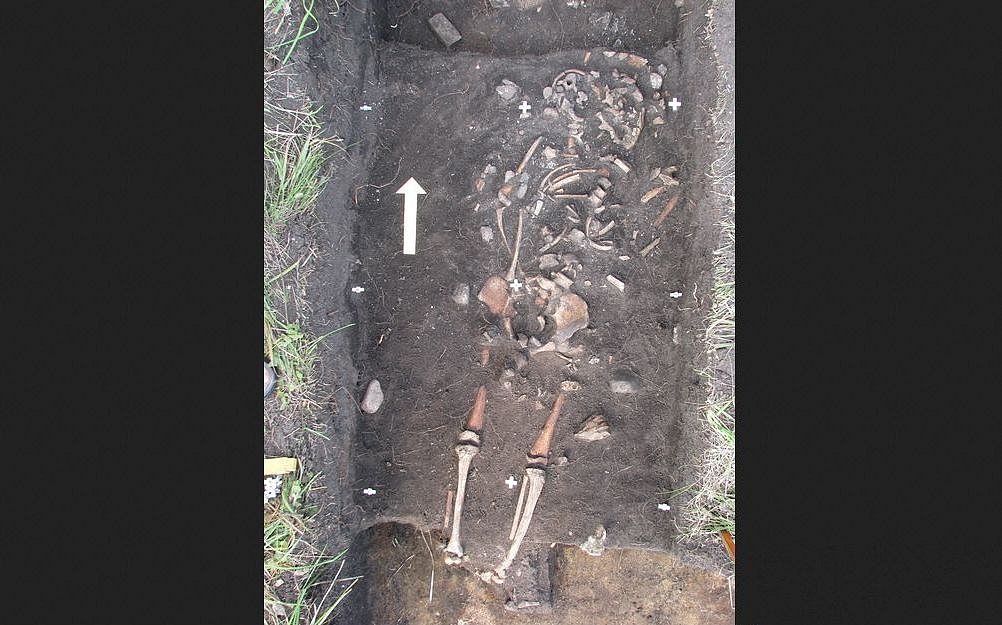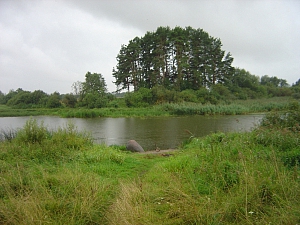A 5,000-year-old skull was exhumed at Riņņukalns near the River Salaca in northern Latvia in the nineteenth century and has been in Germany ever since, with the identification tag RV 2039. In all, more than 90 burials have been recorded at Riņņukalns, which researchers described as being "an integral part of a long-distance exchange via the river networks of the East European Plain."

The RV 2039 skull was orginally discovered by Baltic German nobleman and enthusiastic amateur archaeologist Carl Georg von Sievers in 1875. He sent it to renowned German physician Rudolf Virchow (1821–1902) in Berlin for analysis and it has remained in Germany ever since.
Now, nearly 150 years later, von Sievers' discovery has finally revealed its full significance.
The skull is the subject of new research by the University of Kiel that suggests the individual it belonged to had the oldest known strain of Yersinia pestis, the bacteria that causes Bubonic plague, most likely in a milder form than what was much later to become the virulent strain associated with the Black Death across medieval Europe. He may have caught it from rodents or even beavers, which appear to have been very common at the site.
"Up to now this is the oldest-identified plague victim we have," co-author of the research Dr Ben Krause-Kyora of the University of Kiel said.
The full research is published by the specialist journal Cell Reports and is well worth a read.
It says in summary:
"The genomic and phylogenetic characteristics of RV 2039 are consistent with the hypothesis that this very early Y. pestis form was most likely less transmissible and maybe even less virulent than later strains. Our data do not support the scenario of a prehistoric pneumonic plague pandemic, as suggested previously for the Neolithic decline."




























